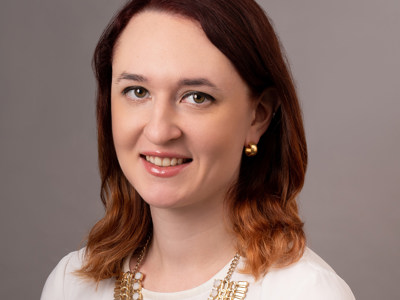
Older LGBT+ people and COVID-19
Human rights solicitor and member of our LGBT+ and Allies committee Zoe Johannes considers the mental health risks for the older LGBT+ community affected by social isolation measures.
Posted on 15 May 2020
It is universally acknowledged that older people are at an increased risk of serious illness and death due to COVID-19.
However, with no clear indication of when social distancing measures are likely to end, there is an increasing concern for the risks of isolation to mental health. Unfortunately, many of the people who are physically at risk due to old age are also more vulnerable to the psychological effects of isolation.
As a human rights solicitor, and a member of our LGBT+ and Allies committee, I know from experience that the LGBT+ community and the elderly can often face difficulty and inequality when it comes to accessing support services and mental health care.
Older LGBT+ people are at a particular risk of isolation when compared to their non-LGBT+ peers, according to a 2011 Stonewall report entitled “LGB in later life,” based on a survey of 2,000 people aged 55 and over in Britain. At the time of that report, LGB older people, when compared to heterosexual older people were:
- Three times more likely to be single
- Twice as likely to live alone
- Three times less likely to have children
- Only half as likely to see family members on a regular basis
As a result of their increased risk of social isolation, older LGB people were more likely than heterosexuals to suffer from poor mental health and substance misuse. They also had less reliable access to support, both from support services and community groups geared toward older people (which were not always accepting of LGBT people) and from LGBT organisations (whose activities were often geared toward younger people).
A 2019 Age UK report entitled “Transgender issues and later life” revealed additional risks unique to older trans people, with an emphasis on difficulties around accessing medical care. These included barriers to undergoing certain gender-affirming procedures due to older age or pre-existing health conditions, and issues arising out of long-term hormone treatment.
As social and medical acceptance of trans identities is newer than for LGB identities, and trans people are more reliant on medical care, one of the key risks facing an ageing trans population is that they are the first generation to go through many of these problems, and health and social care providers are less familiar with how to treat them.
Opening Doors London (ODL) is the largest charity in the UK to provide information and support services for LGBT+ people over 50. It is a charity that our LGBT+ and Allies committee have supported previously through fundraising efforts and we hope to keep supporting them in their important work for the community.
Initially started in 2001 as a small project within Age Concern (now Age UK), ODL became a registered charity in 2016, with the mission to enable LGBT+ people over 50 to live full and vibrant lives free from loneliness, isolation, prejudice and discrimination. The charity organises events and social groups geared toward LGBT+ people over 50 in London, as well as providing specialist training for care homes, housing associations and hospitals across the UK to help them understand the unique needs of this community.
To address the risks posed by Covid-necessitated isolation, ODL has changed its befriending service to a ‘telefriending’ service, which is now receiving up to 30 new referrals each week. It has recruited more volunteers, due to an increase in calls from older LGBT+ people across the UK seeking support in accessing vital supplies and services, and even from people in the USA and Europe seeking understanding or a friendly conversation.
When lockdown is lifted and members are safely able to reconvene, it is hoped that the previously available services can continue. For now, volunteers and donations are sorely needed to continue to provide much needed support to this vulnerable, isolated population.
If you or a loved one are over 70 and/or have a medical condition that makes you clinically vulnerable to coronavirus, you should have received a letter from your GP in March advising you to stay at home for 12 weeks due to the risks associated with coronavirus. The Government guidance has now been updated; since 1 May, you are able to leave your house, but should still “stay at home as much as possible and if you do go out, take particular care to minimise contact with others outside your household.” However, if you do not feel safe to leave the house to collect food, you may be eligible for deliveries of food and essential supplies as part of a national service. If you take regular medication, including as part of your gender transition, you are entitled to receive deliveries of this medication from your local community pharmacy. You should contact your GP and let them know you are in need of these services.
To find out more about Opening Doors London’s work here.


